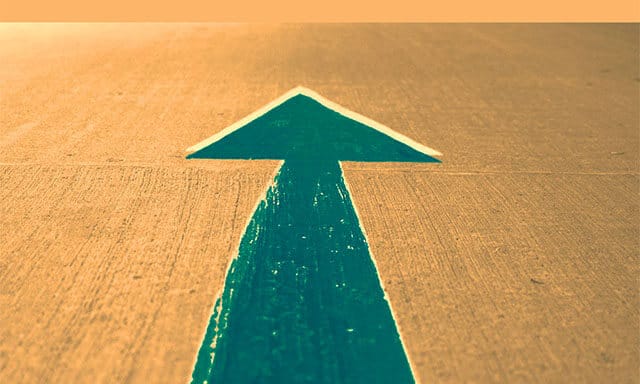The secrets to happiness aren't as complicated as we tend to make it, yet it…
‘We all fail, but it’s how we deal with fears and failure that separates those who ultimately succeed in life’.
Self-improvement has a clear moral goal at heart – to improve. Yet with this can often come ‘unexpected burdens of positive expectations’. In other words, through seeking to improve we try to lead towards happiness, but improvement requires something else entirely.
Why Self Improvement Is Misunderstood (It Is Not The Same As Popularized Modern Self Help – like mindfulness over meditation)
The illusion of many self-help books out there is that we need to seek comfort first. They aim to help people cope but can end up building people up with false hope and try to ‘comfort blanket’ people into thinking all they have to do to improve is just be grateful and positive. It comes from the outside-in rather than inside-out.
While it can certainly help to be grateful and positive in the long run (rather than ungrateful and bitter), it’s also really bad advice for most who are seeking self-help because they don’t know how to feel positive. It only makes them feel worse that they can’t be positive or goal-driven all the time, or that they must be a failure for not feeling happy in life.
The main issue with seeking self-help is it doesn’t really focus on the actual self exploration but is more of a mirage of what a self should be like to be ‘happy’ or fulfilled – again seeking comfort as the cure.
It leads to people searching externally for that ‘belief’ even when they hear ‘believe in yourself’. They read books to tell them everything is okay, everything is comfortable. They go to communities to feel stronger yet at the same time this can absolve them of responsibilities in themselves to look deeper within them.
They simply don’t learn the skills in becoming accountable, and they seek to obtain a bubble lifestyle that is wrapped around the illusion of success and happiness, but little actual improvement.
It creates this perfectionist outlook where improvement is to be ‘seen’ as having everything in life be great, rather than learning to be okay with letting go of things that are out of our control, or which don’t actually matter to us, or just accepting life as a series of separate challenges and puzzles to be solved rather than this mountain top approach where everything has to fall into place.
All perfectionism will do is over-focus on one area and neglect other areas this leading you to be less than perfect, thus, it doesn’t exist.
Where Improvement Really Lies
Improvement comes not from seeking positivity, validation or comfort, but from change (or the ability to deal with and accept change), and to push through failures.
We become happier when we accept stresses and challenges as part of growing in life, we don’t when we chase material things or status in order to create an illusion of happiness.
We should embrace life as a journey of ups and downs like a rollercoaster, because improvement only comes from having the hard times to deal with. When we have something hard happen then that’s life, accept it and take it as an opportunity to learn and grow.
Besides we shouldn’t seek happiness in everything all the time anyway. If we were happy all the time then we wouldn’t even know what happiness felt like, we’d just be on a status quo all the time (and a reason why utopias can never exist).
We don’t improve because we are happy, we become happy from when we improve.
We seem to have got it mixed up with self-help sending out this ‘be strong, positive and grateful‘ snowflakyness.
It’s not that people are sending that limited advice out on purpose, as they will undoubtedly have been spoon-fed the same thing, and it’s not that they intend to do harm with it – they by all means intend to do the opposite. It’s just that this comfort world we live in today seems to think growth is achieved through having to be comfortable all the time, when resilience and adapting to change are far more useful for us.
Why We Have Become Comfort Led
We live in times of increased comfort yet we still find a lot to be unhappy with. Why is that? Well we can make out our stresses to be a lot worse than they are simply because of two reasons:
- We don’t allow ourselves to be accountable for them
- We are hard wired to look for reasons to moan so our life feels more valuable.
The first one is more or less explained in our search for self help to actually be about external feeling rather than inner resolve. The second point is more interesting though.
We may live in a time of more comfort and convenience that ever before, yet through history we had ensure very harsh living environments (ones which sparked the boom in innovations we take for granted today).
This meant people developed a thick skin so they didn’t give up on life and persevered towards improving, and they had many things driving them towards improvement, which added a lot of value to their lives.
These days we see generations growing up with all the rewards of this hard labour and resolve, yet through no fault of their own they seem to have less purposeful drive because they already have a comfortable existence.
Through history these hard times became a driving force of our success and perseverance, yet today we have to search for meaning elsewhere. Instead we fall more and more into a void of comfort thinking money buys freedom, and freedom brings happiness. Happiness becomes the end goal to our self validation.
The problem is we can’t always be happy, emotions fluctuate. At times we can appear content in a part of life but then two years later we might be seeking something else entirely (even a minute later with instant gratification today). This alone should tell us that happiness should never be a goal in itself.
The ability to adapt is something now lost on many, as we’ve become specialized to fixed positions and routine civilized lifestyles. Not very often do we actually need to adapt through our day these days, but that doesn’t mean we shouldn’t.
We are still hard wired to seek problems, which is why we moan to create validation our lives being meaningful. This is understandable though.
Meaning comes from a challenge, to find a problem in something to then solve. All animals are problem solvers in order to survive. When it comes down to it we solve problems when we have to.
The difference is many don’t actually have to anymore. Our lives are not at stake everyday.
For many life is more than comfortable to get by now. Even rewards are gained, not for being adaptable, but repeating the same thing each day. We become used to comforts and support externally, and often live in a void behind that illusion of safety.
This goes against our hard-wired desires to find meaning through challenges, and to build resolve to survive.
So we seek to create an illusion of having a harder life that needs solving, even if we arguably don’t compared to times in history.
It’s not to say we don’t have valid stresses but no one wants to feel worthless so we create our own dilemmas.
We become discontent if we haven’t achieved a level of comfort instead, if we have no money, no position of recognition. We find ways to seek to feel important despite the lack of drive that forced survival would create.
The issue with this is we just don’t become as adaptable through seeking comforts as we do through resolve or through challenges or change, and within us we still long for something more to feel happy.
We forget that ‘we don’t improve because we are happy, we become happy from when we improve’.
So we seek self-help books and seek meaning in our lives, but again this is an external search for validation rather than an inner search for resolve. We just don’t become the problem solvers to our issues in life this way and people can end up feeling empty, or at least not motivated to change, after reading such self help books.
They might get an immediate rush of adrenaline from positive wisdom but usually fall back into comfort-led ways as it’s easier, only to pick up a book again to try and resolve their feelings for them, and for the predictable cycle to continue.
So, What Can Be Done About It?
The less we have to physically fight to survive, the more we search for psychological meaning.
With less immediate hardship people search more to understand themselves which is a good thing, yet instead of polluting ourselves with psychological issues to give us a reason to moan and be validated, we have to instead create that environment of challenge to improvement, and to embrace the challenge.
There may be this void between knowing we want something more meaningful and this comfort that keeps us trapped from finding it, as we are at first less adaptable to change, so we have to train ourselves to be adaptable, which comes through varied challenges we set ourselves.
Setting challenges doesn’t have to be scary.
Improvement doesn’t always come easy as it takes us into having to learn something we don’t know – if we knew it already we wouldn’t really have to improve at it.
It may seem daunting to take a challenge we aren’t comfortable in, so it’s a case of being comfortable being uncomfortable (something our modern society should take note of).
It’s fine to worry about making mistakes so long as you are actively trying to improve.
Remember.
‘We all fail, but it’s how we deal with fears and failure that separates those who ultimately succeed in life’.
It’s absolutely okay to have issues and fears. It’s entirely normal and they don’t mean you aren’t successful, or even happy. You can be very happy even knowing you have to deal with them.
How?
You accept the challenge as an opportunity for improvement. Even if you ‘failed’ in the attempt it only means you have a new challenge to iterate and seek to try again.
Not trying is the only failure there is, but action is what delivers results, and what creates a sense of value and worth in ourselves.
We can read all the self help books in the world and still not really improve as we have to apply the methods and realise that improvement only comes from applying knowledge, not through just acquiring it.
Eventually, if you acquired knowledge and did nothing with it you’d largely forget what you learnt. You could study to learn a language for years in theory but immerse yourself in a cultural program and you’d likely learn the same in a month.
Sometimes It’s Better To Do Less
With all that said, one of the reason people give up on self-improvement is because they just overwhelm themselves with this notion that they must improve all the time.
That comes from the illusion that improvement only means success and not failures too, but also through just trying to achieve too much in life and then giving limited time and energy to really focus on something well enough to improve at it.
You are always far better trying to be balanced in life and eliminated as much as you can that isn’t essential towards you and your goals. Why shouted to be heard through five media channels when you could become more established on just one.
Now, there’s also an argument to say that specialism isn’t the answer to life, and being a generalist provides more adaptability and balance. So, only focusing on one or two things doesn’t mean to do that for life. It means to not overwhelm yourself at one time.
We use so much energy in worrying about things we don’t have to. As this article illustrated, we often did so in history to survive so our concerns were validated then, but today they aren’t. So, focus at one thing at a time and let go of the rest.
Our minds need time to process what we’ve learnt too, so we can also at times just let go completely and ‘whitespace’ our thoughts.
Final note
Of course, seeking to improve ourselves shouldn’t lead towards self-doubt, yet the clearest way towards improvement is to embrace the doubt and to keep going anyway.
An article about how positivity self help has lead the easily offended and the turning up for a medal, instant gratification, narcissism, identity group social media led world
Simple, I have a passion for creating ideas and understanding psychology, and have tried to learn as much around those topics as possible whilst traveling around the world and being a design thinking consultant in tandem. I also am quite sick of a lot of the bullshit I see on the internet regarding self-help and people’s mindset brainwashing towards conditioning. I want to help people, to add value, and to let people decide for themselves whether the advice is useful or not. I hope it inspires people to search within themselves to challenge their comfort zones and I hope it will ignite their inner creative side, which is often very suppressed within people. Self-help is often seen as a logical standpoint too – just believe in yourself, and fake positive mantras towards making a positive mindset that can then achieve anything, or some ridiculous step-by-step program promising wealth from your new mindset. We all want to improve ourselves, our chance of survival and to ideally thrive in life, but we are also so incredibly conditioned to fall for schemes and scams on the internet these days, where there’s so much sales patter and fake lives being led in the pursuit of ‘freedom’, but that isn’t what freedom is at all or how to genuinely find it. It is never found by staying in your comfort zone and never through some mindset positive masking training. That is just short-lived adrenaline. Our lives are short and they go with people spending their whole lives focusing on trying to climb a mountain to survival, and missing the actual journey and joys of life around them whilst doing so, and seeing their minds become more and more conditioned to this trap race as I call it. The trap being that they focus so much on trying to climb a ladder to success, either through job traps for comfort or through finding schemes that will set them ‘free’ and heavily in passive income, and they fail to keep their creative side of their brain open the more they become influenced. They get sucked into social media and into trends and bandwagon effects that make them appear current or important but again they just get more sucked into the need for validation to feel important, rather than keeping their minds open to create and deliver some real value in life. Their minds close-up and become heavily conditioned to the bias around them, and the further they go into it the harder they find it to adapt their mind. Adaption is key for the freedom they crave in life but they fall into rabbit traps and don’t know how to adapt or change the more their mind is sold or influenced to an idea. They become followers rather than innovators. Their creativity shuts down through life as they follow sequential routines and patterns in life. This site is about waking people up to be real again, to open up their creativity and to help people overcome the conditioned fears and ingrained bias and to begin to think more openly and innovatively again. It challenges them to take action to open their minds to a fresh and real (rather than fake or follower) way of thinking. As a design thinker by trade for many years, having traveled and lived abroad for 10 years, and having left social media and the trappings of the fake internet world for many years whilst putting myself out of my comfort zone to research and test innovative thinking and creative intelligence without modern social influence, I want to help others to awake their minds and take a fresh look at their lives again, to enjoy their journey through life with creative input in each day, to think about solutions the world needs to solve forward-thinking problems (which will help them develop the freedom to think of solutions to their own personal issues too), and to come together to co-create and add more value to their own lives and others for real, living a richly-led life, and hopefully actually lead people to actively take steps towards making significant changes in their life, not in terms of material gains, not even in terms of material positive thinking masking, but in actual truth self-worth in their lives.
I have a simple vision in wanting to help people make their lives count, and I firmly believe opening and developing our creative, visionary side of our brains (we all have but are often stifled within us) as we challenge our comfort zones can help do that. The site explains the what, why and how’s, and provides useful articles, advice, and tools to help you shape your vision.









